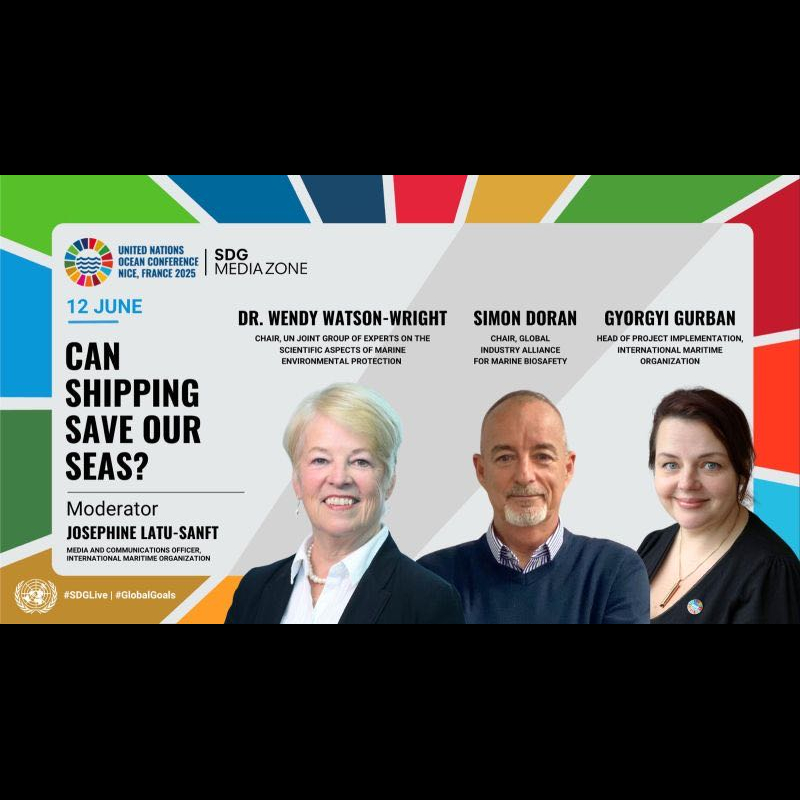At a high-profile side event during the UN Ocean Conference in Nice, IMO took centre stage in discussions focused on shipping’s evolving role in ocean sustainability, with a particular emphasis on environmentally responsible ship recycling.
The panel brought together leading experts to address the question: Can shipping save our seas? Speakers included Dr. Wendy Watson-Wright, Chairperson of the UN Joint Group of Experts on the Scientific Aspects of Marine Environment Protection (GESAMP); Simon Doran, Chair of the Global Industry Alliance for Marine Biosafety; and Gyorgyi Gurban, Head of Projects Implementation at IMO.
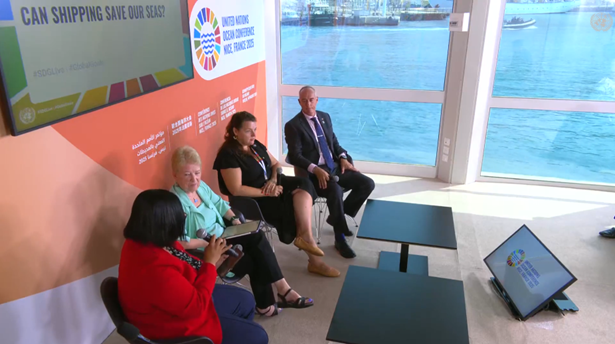
Panellists acknowledged shipping’s crucial role in the global economy, carrying over 80% of world trade and generating more than $930 billion for the ocean economy last year. However, they also highlighted the sector’s environmental challenges, including emissions, marine pollution, and the spread of invasive species through ballast water and hull fouling. Dr. Watson-Wright emphasized the importance of robust, science-based regulation, noting that IMO has been instrumental in addressing marine environmental threats, such as through the Ballast Water Management Convention, which has significantly reduced the risk of invasive species transfers.
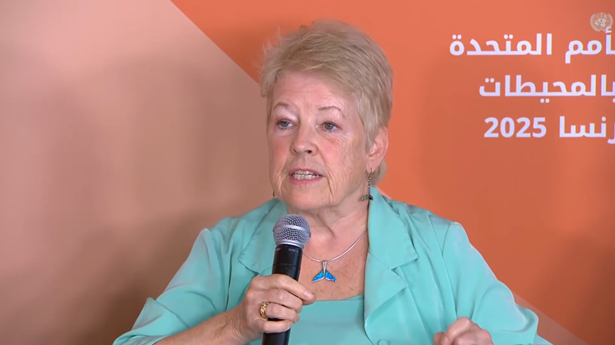
Gyorgyi Gurban detailed IMO’s expanding portfolio of environmental projects, including the SENSREC programme on ship recycling. She explained that IMO not only sets international regulatory standards but also supports developing countries in implementing these rules, ensuring that environmental improvements are realized globally. Gurban highlighted that IMO’s approach combined mandatory international regulations with targeted technical cooperation and capacity-building projects, particularly in developing regions. This support is tailored to national needs and involves partnerships with scientific bodies and industry to ensure practical, science-based solutions.
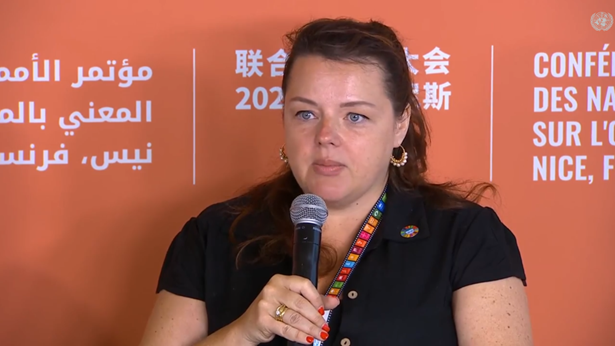
Simon Doran, representing the Global Industry Alliance for Marine Biosafety, stressed the importance of industry partnerships and regulatory certainty to drive sustainable practices. He pointed out that IMO’s clear regulatory framework and support for innovation had enabled shipping companies to invest in environmentally friendly technologies.
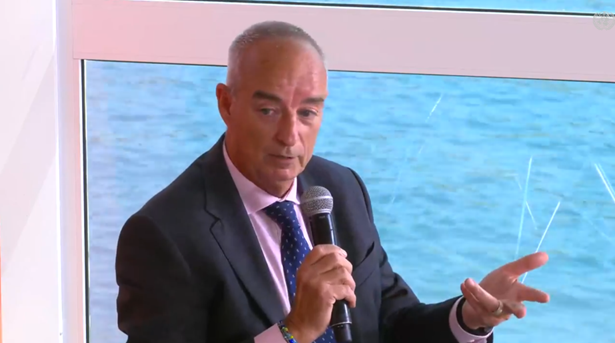
The event underscored that shipping is no longer a “hidden” sector but a key player in the global push for ocean sustainability. Through the leadership of the IMO, the industry is making tangible progress in areas such as emissions reduction, and marine pollution control and ship recycling, demonstrating that shipping can indeed be a force for ocean stewardship.

Watch the full conversation “Can Shipping Save Our Seas?” on UN Web TV.



